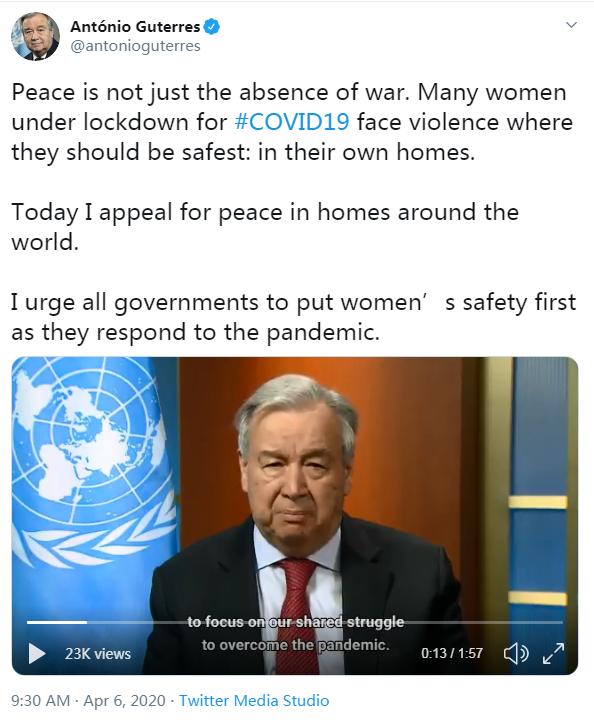United Nations Secretary-General Antonio Guterres on Sunday warned against a rise in domestic violence due to growing worries and pressures as a result of lockdowns and quarantines to contain the spread of COVID-19.
"I recently called for an immediate global ceasefire to focus on our shared struggle to overcome the pandemic," said the UN chief. "I appealed for an end to violence everywhere, now. But violence is not confined to the battlefield. For many women and girls, the threat looms largest where they should be safest. In their own homes."
"And so, I make a new appeal today for peace at home - and in homes - around the world," said Guterres.

The UN secretary-general noted that lockdowns and quarantines are essential to suppressing COVID-19, "but they can trap women with abusive partners."
"Over the past weeks as economic and social pressures and fear have grown, we have seen a horrifying global surge in domestic violence," said the UN chief.
He said that in some countries, the number of women calling support services "has doubled," adding that meanwhile, healthcare providers and police are overwhelmed and understaffed and local support groups are "paralyzed or short of funds."
"Some domestic violence shelters are closed; others are full," he noted.
The UN chief urged all governments to make the prevention and redress of violence against women a key part of their national response plans for COVID-19.
Research by the World Health Organization (WHO) details the disturbing impact of violence on women's physical, sexual, reproductive and mental health: women who experience physical or sexual abuse are twice as likely to have an abortion, and the experience nearly doubles their likelihood of falling into depression.
In some regions, they are 1.5 times more likely to acquire HIV, and evidence exists that sexually assaulted women are 2.3 times more likely to have alcohol disorders. 87,000 women were intentionally killed in 2017, and more than half were killed by intimate partners or family members.
(With input from agencies)